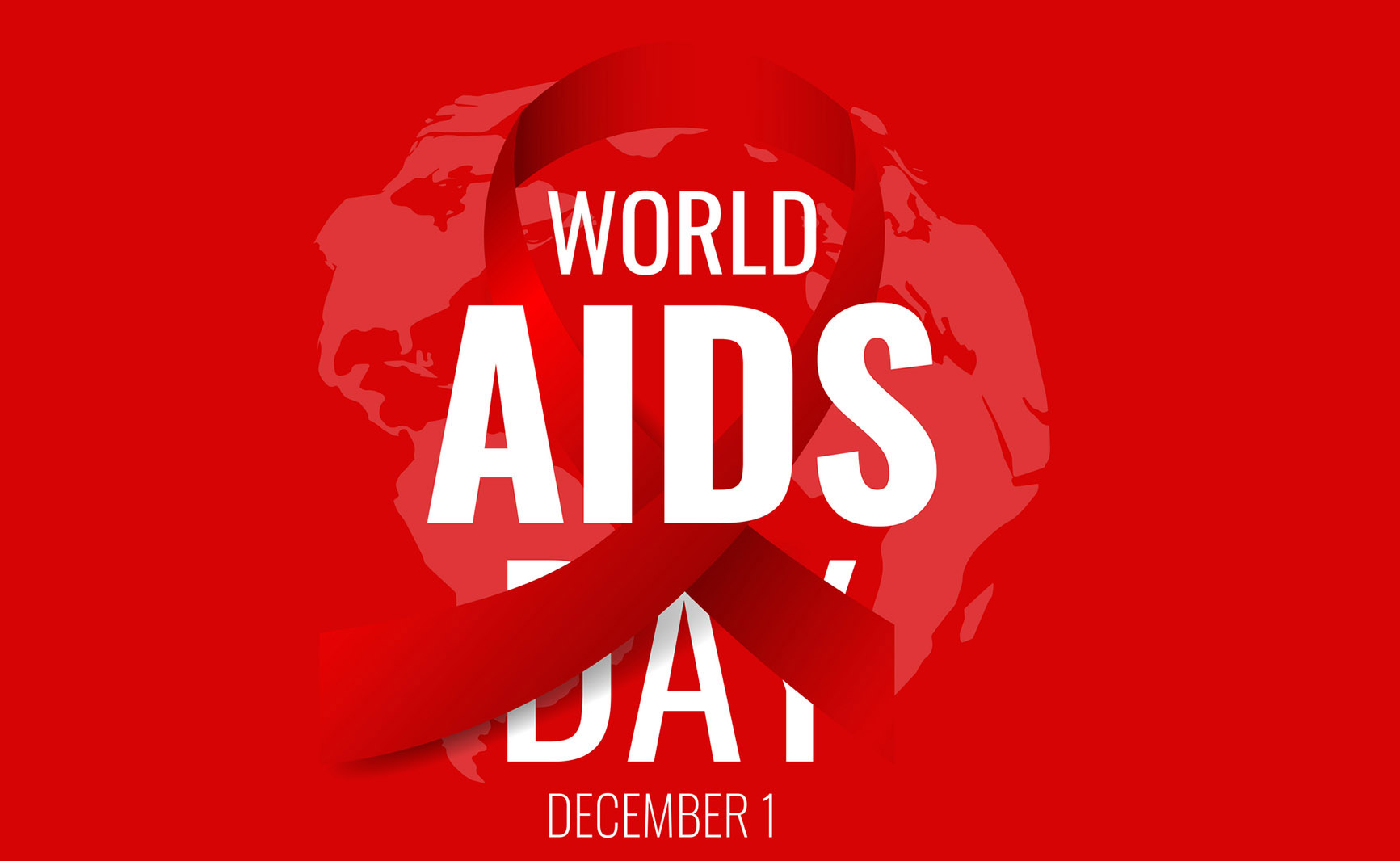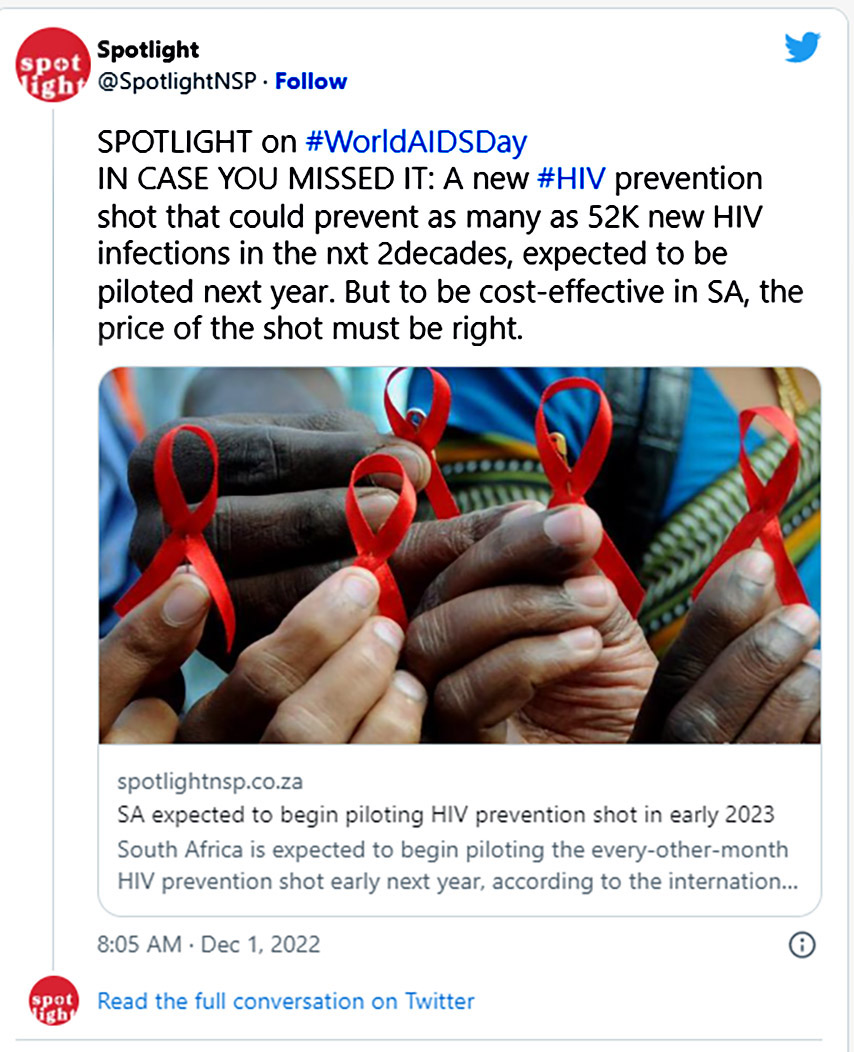SPOTLIGHT OP-ED
HIV/Aids inequality must end to halt the persistent epidemic
As we look at the year ahead, urgent work remains to build on past successes and to bring the HIV epidemic sustainably under control. Amongst others, we need to address persistent stigma and discrimination, as well as the structural and social factors that put women and girls at increased risk of HIV infection, argues Rachel Toku-Appiah.
Today, on World Aids Day 2022, we are living in such a different world from 20 years ago.
Let’s just take the statistical temperature:
In 2021, there were 38.4 million people living with HIV.
Africa remains statistically over-represented. 67% of those living with the disease are in sub-Saharan Africa, but we’ve also seen the sharpest reduction in infection of any region in the world. Between 2010 and 2020, HIV infection rates declined by 43% in eastern and southern Africa.
For those living with the disease, access to treatment has soared. 78% of people in eastern and southern Africa now receive treatment (while the global average sits at 75%).
And, between 2010 and 2021, Aids-related deaths in eastern and southern Africa fell by 58%.
It’s fair to say that the dramatic advances we have seen in the fight against HIV amount to one of the greatest success stories in global health and development.
It is because of the successful global collaboration among activists, policymakers, governments, community leaders, and donors that achievements like these have been made possible. The result of these collaborations can be seen across Africa.
In Botswana, thanks to ongoing partnership and collaboration between its government and the US Centres for Disease Control and Prevention and the US President’s Emergency Plan for Aids Relief, the country reached the UNAids “95-95-95” strategy target in July this year. This is four years ahead of the target date. That means 95% of all people in the country living with HIV are aware of their status, 95% of those aware of their status are receiving sustained antiretroviral treatment (ART), and 95% of people receiving ART are achieving viral load suppression — meaning a reduction of HIV in the body to undetectable levels. All this just some months after the World Health Organization had awarded the country Silver Tier status for lowering the rate of mother-to-child HIV transmission to less than 5% and providing prenatal care and ART to more than 90% of pregnant women living with HIV.

World Aids Day is dedicated to raising awareness of the Aids pandemic caused by the spread of HIV infection and mourning those who have died of the disease. It is designated on 1 December every year.
(Photo: iStock)
‘The fight is not over’
We have come so far. But despite these astonishing efforts and incredible advancements, the fight is not over, and once again we are reminded Aids is a matter of equity and equality.
Visit Daily Maverick’s home page for more news, analysis and investigations
In sub-Saharan Africa today, women and adolescent girls are more than twice as likely to acquire HIV as men — accounting for 63% of HIV infections in the region. Meanwhile, an alarming six in seven new HIV infections among adolescents aged 15 to 19 years in the region occur among girls.
Despite so much progress, the challenges of fear and stigmatisation persist and adolescent girls and young women face an array of gender-related barriers that predispose them to HIV.
Deeply entrenched social inequities such as poverty, lack of access to higher education, and gender-based violence have left women and girls particularly vulnerable. These same inequities make it extremely difficult for some women to take daily pills without risking judgment or even retribution. But the key populations who need it most — girls and women — are often the most stigmatised members of society.
Thankfully, action is already being taken at a community and scientific level.

Most of the high-burden countries in sub-Saharan Africa are using science, technology, and innovation to deliver better results in the prevention, care, and treatment of HIV/Aids. Most recently, new prevention methods, including injectables and a vaginal ring, have been approved for use in several countries tackling the gender-related barriers and stigma that can stop those most at risk from accessing the services they need.
As we look at the new year ahead, urgent work remains to build on past successes and bring the HIV epidemic sustainably under control.
To end the HIV/Aids epidemic in sub-Saharan Africa as a public health threat by 2030, we need to prioritise the United Nations’ fast-track approach that emphasises the need to focus on the countries, cities, and communities most affected by HIV and recommends that resources be concentrated on the areas with the greatest impact.
We can do this by improving access to treatment and prevention tools. This must be reinforced by a deeper understanding of the underlying dynamics that shape the epidemic. We need to address persistent stigma and discrimination, as well as the structural and social factors that put women and girls at increased risk of infection. DM/MC
* Toku-Appiah is the Director: Policy, Advocacy and Communications for Africa at the Bill & Melinda Gates Foundation.
Disclosure: This opinion piece was written by an employee of the Bill & Melinda Gates Foundation. Spotlight receives funding from the Bill & Melinda Gates Foundation. The views expressed in this article are not necessarily those of Spotlight. Spotlight is editorially independent and a member of the South African Press Council.
*This article was published by Spotlight – health journalism in the public interest.






















 Become an Insider
Become an Insider
Comments - Please login in order to comment.